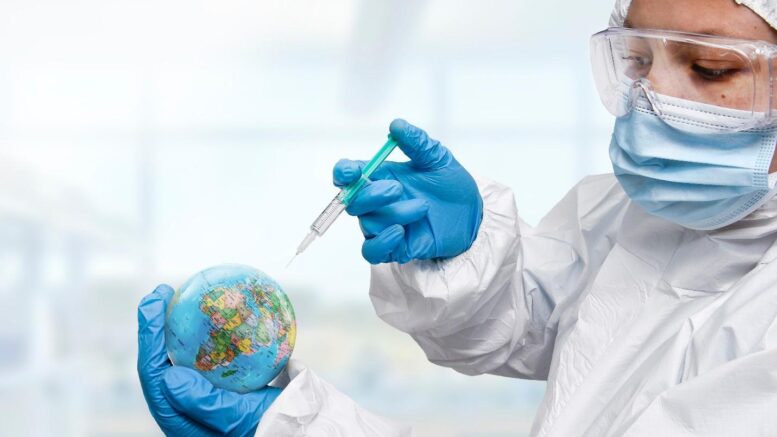Biotechnology—a multidisciplinary sector that combines the fields of biology, technology, and engineering—has emerged as a driving force behind many revolutionary advancements in the healthcare sector, creating new opportunities to improve public health and people’s quality of life. With its potential to reshape the way diseases are diagnosed, treated, and prevented, biotechnology is paving the way for a healthier future for everyone across the globe. In this short article, we’ll explore how biotechnology is positively impacting healthcare across various subfields.
1. Diagnostic Technologies
Through the years, diagnostic methodologies and techniques have been significantly enhanced by biotechnology. In recent decades, biotechnological research into areas like molecular biology, genetic testing, and advanced imaging techniques, has enabled the development of more accurate and efficient diagnostic tools that are now found in many facilities, biosafety level 2 laboratory and hospital labs alike.
Technologies like polymerase chain reaction (PCR) and next-generation sequencing (NGS), for example, have been at the forefront of the identification of genetic disorders and infectious agents, leading to earlier and more precise diagnoses. These have been of significant value during the recent COVID-19 pandemic, when millions of people across the world needed testing for the SARS-CoV-2 virus.
Other recent diagnostic breakthroughs include liquid biopsies and CRISPR-based tests for early cancer detection, AI algorithms for precise image analysis, and portable point-of-care devices for rapid testing, which are helpful in the delivery of care especially to patients living in remote areas. These innovations showcase biotechnology’s role in delivering quicker, more accurate diagnoses and expanding healthcare access for those who are on the margins of society.
2. Medicines and Therapeutics
Within the realm of biotechnology, the fields of medicine and therapeutics have also undergone a profound transformation. For example, gene therapy has emerged as a revolutionary strategy, offering potential remedies for genetic disorders by precisely delivering corrected genetic materials. The idea is that modifying patients’ genes will work to treat or cure the disease. Concurrently, the landscape of cancer therapy has also been reshaped through precision medicine, tailoring treatments to individual patients based on genetic insights, while immunotherapies leverage the body’s own defenses to combat cancer. This tailored approach enhances patient responses and quality of life.
Complementing these advancements, personalized medicines, meticulously tailored to an individual’s genetic or physiological composition, are not only optimizing treatment outcomes but also minimizing the risks of adverse reactions. These collective breakthroughs exemplify biotechnology’s far-reaching impact in customizing medical approaches and ushering in a new era of therapeutic possibilities.
3. Vaccines
The development of vaccines has been one of the fields that received significant benefits from biotechnology, as evidenced by the rapid response to the COVID-19 pandemic. Modern vaccine platforms, such as mRNA technology, enable the swift creation of vaccines against newly discovered pathogens, like the then-novel coronavirus. This breakthrough has far-reaching implications for infectious disease control, offering a more agile response to emerging biological threats—a big help at a time when environmental challenges like climate changes and human incursions into previously isolated animal habitats compound the chances of unknown pathogens emerging into the mainstream. Additionally, advancements in bioprocessing have streamlined vaccine production, ensuring a more readily available—and more reliable—supply of vaccines to meet global demands in the event of an epidemic or pandemic.

4. Regenerative Medicine
In recent years, biotechnology has also revealed the huge potential of regenerative medicine, a broad field that not only includes tissue engineering but is also focused on repairing and replacing damaged tissues and organs. One good example of a class of therapies that has become a cornerstone of regenerative medicine are stem cell therapies. They leverage the body’s innate regenerative capabilities to treat many conditions. Healthy cells can be generated to replace cells affected by disease and trauma—a process that can be helpful to people with spinal cord injuries, heart diseases, amyotrophic lateral sclerosis, Parkinson’s disease, Alzheimer’s disease, type 1 diabetes, and cancer.
More recently, through advanced tissue engineering and 3D bioprinting, biotechnology is also making strides in creating functional, lab-grown organs for transplantation, a process that could potentially address the critical shortage of donor organs in the near future.
5. Medical Devices and Equipment
Biotechnology has also led to the development of cutting-edge medical devices and equipment that enhance patient care and serve to supplement pharmaceuticals and biologics. These innovations, which blend biology and technology, have improved diagnostic accuracy, patient comfort, and overall treatment outcomes, and include such advanced medical devices like implantable insulin pumps for diabetes management, bionic prosthetics with neural interfaces, and bioengineered tissues for wound healing.
6. Age Reversal
The concept of age reversal, while still in its early stages, is an exciting prospect within the realm of biotechnology and healthcare. Once considered to be within the domain of science fiction, a cure for aging is within humanity’s reach. Presently, research into understanding the mechanisms of aging at the cellular and molecular levels is yielding insights into potential interventions to slow down or even reverse the aging process. While this area of biotechnology and medicine requires further exploration and validation, it holds promise for extending healthy lifespans and reducing the burden of many diseases, which are directly and significantly correlated to aging. There are some estimates that anti-aging therapies may become available as early as the 2030s.
Biotechnology is a field that is reshaping the landscape of healthcare across diverse domains. From diagnostics to therapeutics, its transformative influence is evident in the remarkable advancements witnessed in recent years. As biotechnology research and development continues to evolve—and as significant amount of resources are poured into biotech activities—the healthcare sector stands to benefit from innovative solutions that enhance patient care, improve health outcomes, and contribute to a healthier society overall.
